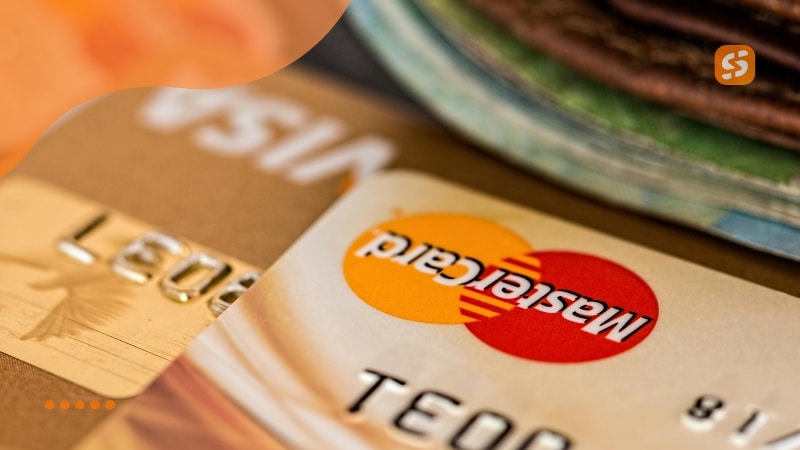Advertisements
Smart financial management in Singapore requires understanding all the costs associated with your card. That’s why we recommend opting for credit card late fees in Singapore information.
Many focus only on rewards (miles or cashback) and ignore late payment penalties. However, the rules for delinquency in Singapore are stringent.
Understanding the fee structure is crucial for you to use your card to your advantage and never be caught by surprise. Therefore, understanding credit card late fees in Singapore is necessary.
In this article, we will analyze all the costs of the credit card late fees in Singapore, detailing not only the amount, but also how it fits with retroactive interest rates (APR) and the grace period.
Advertisements
Thus, you will learn the exact structure of penalties, waiver policies, and how the Monetary Authority of Singapore (MAS) regulates credit to protect consumers. With this information, it will be easy to choose your ideal card.
Understanding the Fees Charged on Singapore Credit Cards

The credit card late fee Singapore has one of the highest and most standardized financial penalties in Singapore’s credit market. It is important to know all costs before choosing a card.
Late Payment Fine (Credit card late fees in Singapore)
In Singapore, the penalty for not meeting the minimum payment by the due date is high and uniform among most major banks.
It works like this: A fixed fee of up to S$200 is applied.
Advertisements
This fixed amount does not change based on the size of your outstanding balance (unless it is very small, below S$20). In that case, the fine will be proportional to the amount due.
How Do Retroactive Interest Rates Work?
The credit card late fee Singapore is just the first layer of the penalty. The biggest cost of delinquency is not the fixed S$100 fee, but rather the activation of interest.
The Singapore market has high interest rates. For example, DBS charges 27.80% per year, while Standard Chartered applies 26.90% per year.
This interest works as follows: If you do not pay the full statement balance by the due date, interest will be calculated retroactively from the day each transaction was made, not just on the remaining balance.
What About the Grace Period and Statement Payment Deadline?
Understanding your payment deadline is important to avoid worrying about the credit card late fee Singapore.
The grace period is the time during which you can make new purchases without being charged interest, under a strict condition.
Regulation in Singapore requires a minimum grace period of 21 days.
The common market practice is to offer up to 25 days of interest exemption, counted from the statement issuance date.
Furthermore, if you pay the full balance every month, you will always be within the grace period, avoiding interest and the credit card late fee Singapore.
Minimum Payment vs. Full Payment
The difference between these two actions defines whether you will pay S$100 (the late fee) and retroactive interest, or nothing. See the table below for a better understanding:
| Payment Action | Financial Outcome | Consequence |
| Full Payment | Received before the due date. | Avoids the Late Fee (S$100) AND retroactive Interest (APR). |
| Minimum Payment | Received before the due date. | Avoids the Late Fee (S$100), but activates retroactive Interest (APR) on the unpaid balance. |
| No Payment | Not received before the due date. | Incurs the Late Fee (S$100) AND retroactive Interest (APR). |
Can You Get an APR Waiver?
Although the credit card late fee Singapore is a rule, most major banks offer a window of goodwill for customers.
Standard Chartered, for example, offers its customers a late fee waiver once every 12 months, usually upon request.
How Does Late Payment Impact Your Score? (Credit card late fees in Singapore)
Paying the credit card late fee Singapore means more than losing S$100.
A late payment can negatively affect your history with the Credit Bureau Singapore (CBS), having long-term consequences.
This is because the delay is recorded and can lead to a reduction in your credit score.
Therefore, consistent delays or multiple credit applications in a short period will make the CBS interpret you as “credit hungry,” further reducing your score.
For this reason, responsible payment management is vital.
Best Credit Card Late Fee Singapore Options

While the focus is on avoiding the credit card late fee Singapore, the reason for using credit cards in Singapore is to seek generous rewards.
Citi Prestige
The Citi Prestige is a luxury card that offers a potential bonus of 59,600 miles. The requirement to achieve this bonus is a Minimum Spend Requirement (MSR) of S$2,000 within 60 days of approval.
Additionally, this card provides exclusive benefits for the premium traveler, such as 12 annual lounge visits and the renowned 4th night free offer on hotel stays.
UOB Visa Infinite Metal Card (Credit card late fees in Singapore)
The UOB Visa Infinite Metal Card is aimed at the high-net-worth (HNW) segment and imposes the most rigorous MSR in terms of timeframe. With a spend of S$4,000 in just 30 days after approval.
Its main advantage is the highest miles bonus on the market, with a total potential of 65,600 miles for New-to-Bank (NTB) customers.
An Annual Fee of S$654.00 is mandatory.
The card also includes unlimited DragonPass lounge access for the cardholder and a guest, indicating it is a product designed for customers who make large transactions immediately and prioritize luxury and convenience in travel.
American Express Platinum Charge
Although it is a charge card and not a traditional credit card, you can get a market-leading bonus of 68,750 miles (based on 100,000 Membership Rewards points).
Additionally, the MSR is substantial, requiring a spend of S$8,000 in 90 days.
The Annual Fee is the highest in the segment, estimated at around S$1,712.
However, the value is justified by the included annual credits, which exceed S$1,354 in various categories (restaurants, fashion, travel).
Citi PremierMiles Card (Credit card late fees in Singapore)
Firstly, this card is a reliable all-rounder for accumulating miles.
The reason is that it offers a potential bonus of 30,960 miles for customers who meet a low MSR of S$800 in 60 days, provided they accept the mandatory Annual Fee payment of S$196.20 (required for the bonus).
Its most notable and advantageous feature is that Citi Miles never expire.
Furthermore, the card includes two annual Priority Pass visits.
Thus, it is a solid choice for those seeking a daily use card that does not impose pressure to redeem points quickly. This is also one of the most recommended credit cards for low income Singapore.
Comparative Table of Main Sign-Up Bonuses and Requirements
| Card (Issuer) | Bonus Type (NTB) | Estimated Nominal Bonus (Max) | Minimum Spend (MSR) | Minimum Period (Days) | Annual Fee (Principal) | Annual Fee Policy |
| UOB Visa Infinite Metal (UOB) | Miles | 65,600 Miles | S$4,000 | 30 | S$654.00 | Mandatory |
| AMEX Platinum Charge (AMEX) | Points/Miles | 68,750 Miles (100k MR) | S$8,000 | 90 | ~$1,712 (Estimate) | Mandatory |
| Citi Prestige Card (Citi) | Miles | 59,600 Miles | S$2,000 | 60 | S$651.82 | Mandatory |
| Citi PremierMiles Card (Citi) | Miles | 30,960 Miles | S$800 | 60 | S$196.20 | Mandatory |
| DBS Altitude Visa/AMEX (DBS) | Miles | 29,040 Miles | S$800 | 60 | S$196.20 | 1st Year Free (FYF) |
| CIMB Credit Cards (CIMB) | Cashback | Up to S$188 Cash | S$988 | 60 | S$0.00 | No Annual Fee (Lifetime) |
| Cashback Offers (Various) | Cashback (NTB) | Up to S$400 Cash | S$1,000 | 30-60 | Variable | Variable |
Conclusion (Credit card late fees in Singapore)
Credit cards in Singapore are quite diverse, offering aggressive rewards and severe penalties.
The crucial point of this article is that, although the value of the credit card late fee Singapore is a fixed cost of S$100. The real threat you should be most concerned about is the retroactive interest, which fluctuates between 26.90% and 27.80% per year.
Therefore, you should consider two things. First, be analytical when choosing the card that fits your spending profile (MSR). Second, be rigorous in managing your payments.
You can now learn about all the main cards on the market and know their fees and benefits. Now, it’s up to you to choose the card.



















